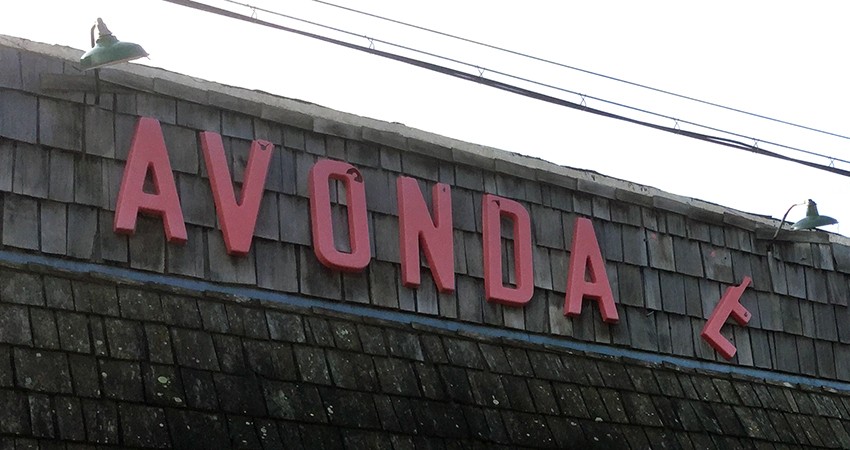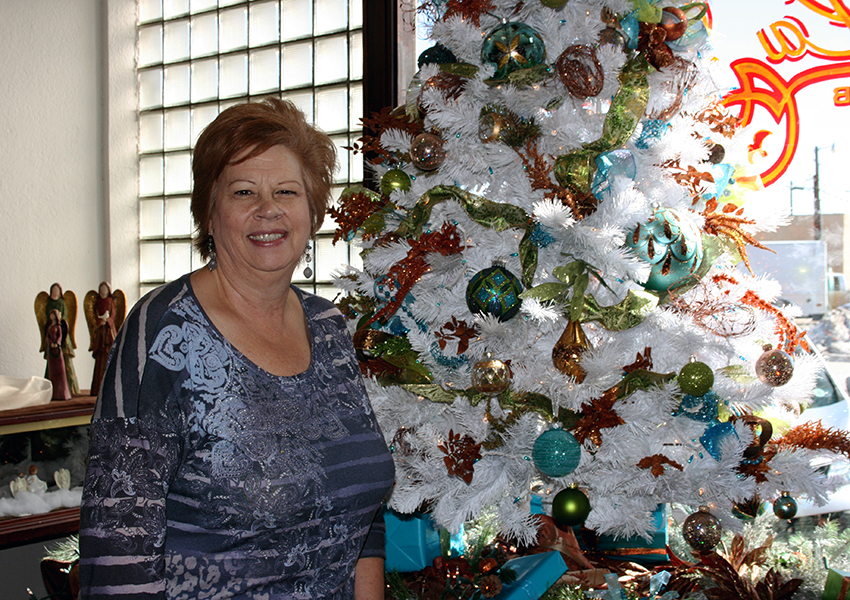Forgotten Colorado
Leer en español
Some residents of Avondale, a small community east of Pueblo, say they feel overlooked by local government. Photo by Theresa Trujillo
By Kristin Jones
The little town of Avondale, 20 minutes east of Pueblo, isn’t a town at all. Technically, it’s unincorporated; officially, you can call it a census-designated place.
It has a post office, an elementary school, a community center and roughly 670 people, a mixture of long-time residents and seasonal farmers who work the fields nearby. It doesn’t have a mayor or a police department.
Ask Avondale residents for a wish list for their community, and you may hear things that sound a lot like basic political representation and public services: A sheriff; clean water; enforcement of existing laws, including those having to do with rental housing quality and wage theft; a local representative to push for the interests of Avondale; a governing board.
At the edge of Avondale sits El Centro de Los Pobres, which offers food, medical services and other help to immigrants and low-income families. Over plates of Mexican food in November, a long table of volunteers at Los Pobres came up with this list when staff and organizers from The Colorado Trust, including community partner Theresa Trujillo, asked them to talk about what Avondale needs.
Trujillo is working in the town as part of The Trust’s grantmaking strategy that asks residents of communities in Colorado to set their own priorities for good health.
For many residents, basic services come near the top of the list.
It’s about more than living in an unincorporated town, says Trujillo. Many of the people at the table are undocumented immigrants, with no vote and no real voice in the democratic process. Others have lived here or in neighboring towns their whole lives. Trujillo says this sense of disenfranchisement is common in this part of the state.
“You hear people say that there are two Colorados,” says Trujillo. “One stops south of the El Paso County line.”
Further south along I-25, Walsenburg is a town of about 3,000 people in Huerfano County. Walsenburg sits at the intersection of two highways, so people pass through on their way to the San Luis Valley or the Spanish Peaks. It used to be a mining and railroad town, but now the mines are shuttered and the train just blasts on by, noisily.
Karen Wilson is busy creating reasons for people to stay. When I visited last month, she was decorating La Plaza Inn (the hotel where she is proprietor) with dozens of wooden nutcrackers, trees, lights and other Christmas decorations.

La Plaza Inn proprietor Karen Wilson shows off a small sample of the hotel’s Christmas decorations. (Photo by Kristin Jones)
Wilson was also a proponent of an electronic music festival, Sonic Bloom, that brought revelers and artists to the area last year.
Wilson is also a member of the Walsenburg Downtown Revitalization Committee, which has successfully raised money for projects like Miners Plaza, a vacant lot that has been reimagined as a site for farmers’ markets, art exhibitions and music.
“There are so many hidden treasures in Walsenburg that it really is something you have to stop and investigate to really see,” says Wilson.
At a weekly coffee klatch at La Plaza Inn, Trujillo asked a group of retired men the same three questions she always asks: What do they love about their community? What’s hard about it? If they could bring down a miracle here, what would it be?
Jobs are the miracle most of them would like to see; a lot of their kids have left the town, and would like to come back if they could make it work. One said he thought it was too late for Walsenburg, where a retired man can live comfortably after what was once a solid living in the mines or the steel mills in Pueblo: “I think you’re beating a dead horse here,” he said.
And then, again, the feeling of disenfranchisement sprang up. How do you win economic development when the big dogs in Pueblo and the bigger dogs in Denver have already staked their claims on potential employers?
“Denver doesn’t know Walsenburg exists,” says another man.
Back in Avondale, Angela Giron, a former Democratic state senator whom The Trust has contracted as a local organizer, reminded the table of volunteers at Los Pobres that they do have representation; the Pueblo County commissioners are one avenue for complaints, she said.
Giron said later she finds herself having this conversation a lot. “How represented you feel? That’s another thing,” she adds.
Giron lost her job in the public sector in September 2013, when she was recalled after supporting legislation that required background checks on gun sales and limits on ammunition. But she hasn’t lost faith in democracy. She believes that whatever the priorities of the residents of Avondale, some form of government buy-in is likely to be necessary for the sustainability of any of their goals.
For many of its residents, says Giron, feeling represented starts with having their voices heard, and feeling like somebody cares.
“It’s starting there, and moving up,” she says.